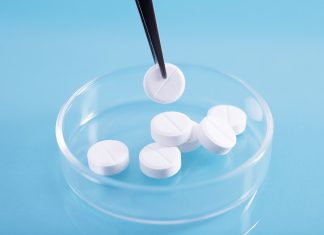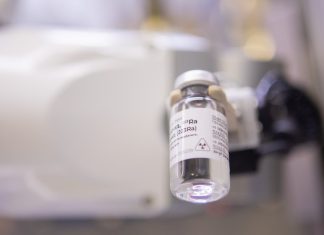Clinical studies of levilimab, a drug developed by BIOCAD, a Russian biotechnology company, have confirmed that it is effective and safe. The results of the study were published by Inflammation Research journal. This was reported by the press service of the company.
Levilimab blocks the development of a cytokine storm in severe forms of coronavirus and is intended to treat patients who do not need mechanical ventilation. The CORONA trial was a multicenter, randomized, double-blind, placebo-controlled phase 3 clinical trial.
“The results of the study confirmed that in patients diagnosed with SARS-CoV-2 pneumonia who do not need invasive ventilation, without signs of another active infection, the use of levilimab together with standard treatment leads to an increase in the frequency of persistent clinical improvement. 63.1% and 42.7% of patients in the groups after levilimab and placebo, respectively, achieved stable clinical improvement on day 14. The frequency of adverse reactions in the two groups was comparable,” the report says.
The study involved 217 patients — men and non-pregnant women aged 18 years and older — hospitalized due to the severe course of pneumonia caused by coronavirus. The efficiency parameter was the proportion of patients with stable clinical improvement on day 14.
According to Yulia Linkova, the director of the Department of clinical development of BIOCAD, a biotech company, in about 20% of cases, the novel coronavirus infection can lead to a serious disease caused by an excessive immune response – a massive release of pro-inflammatory cytokines (a “cytokine storm”). It results in lung damage, the development of acute respiratory distress syndrome, multiple organ failure and coagulation disorders.
A cytokine storm is associated with the severity of the disease and an unfavorable outcome. The need to search for effective therapy in order to suppress the cytokine storm was the reason for conducting a clinical trial aimed at studying the effectiveness of inhibition of interleukin-6 signaling pathway in patients with severe COVID-19,” Yulia Linkova said.




